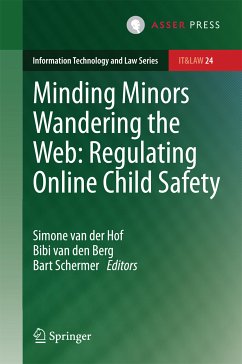Ensuring online safety has become a topic on the regulatory agenda in many Western societies. However, regulating for online safety is far from easy, due to the wide variety of national and international, private and public actors and stakeholders that are involved. When regulating online risks for children it is important to strike the right balance between protection against harms on the one hand, and safeguarding their fundamental freedoms and rights on the other. The authors in this book grapple with precisely this theme: striking the right balance between ensuring safety for children on the internet while at the same time enabling them to experiment, to learn, to enrich their lives, to acquire skills and to have fun using this global network. The authors come from various scientific disciplines, ranging from law to social science and from media studies to philosophy, thus presenting both empirical and theoretical/conceptual approaches, and shedding a multi-disciplinary light on the complex topic of regulating online safety for children.
Dieser Download kann aus rechtlichen Gründen nur mit Rechnungsadresse in A, B, BG, CY, CZ, D, DK, EW, E, FIN, F, GR, HR, H, IRL, I, LT, L, LR, M, NL, PL, P, R, S, SLO, SK ausgeliefert werden.









